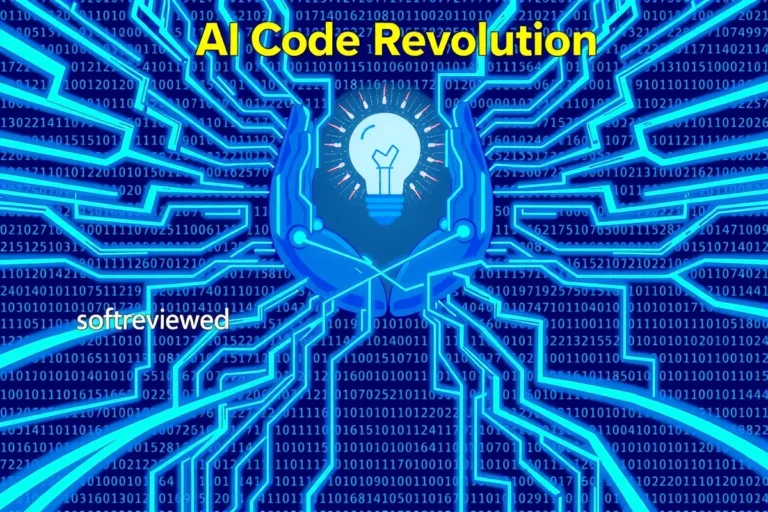Google’s AI Revolution 2023
Key insights into Google’s AI transformation and impact
🤖AI Code Generation
25% of Google’s new code is now generated by artificial intelligence, marking a significant shift in development practices.
📈Engineering Productivity
AI tools are boosting engineer productivity, enabling faster development and increased efficiency in software creation.
💰Cloud Revenue Growth
Google Cloud business saw a 35% increase in revenues, driven by AI implementation and innovation.
🔍Search Enhancement
AI-powered features in Google Search have led to 30% deeper product adoption among existing customers.
👥Workforce Evolution
Alphabet’s headcount decreased by 1,000+ as the company reorganizes with focus on DeepMind AI group.
📺Revenue Milestones
YouTube reaches $50B+ in ad and subscription revenues, while Search business grows 12.3% year-over-year.
In a surprising revelation, Google CEO Sundar Pichai announced that over a quarter of the company's new code is now generated by artificial intelligence. This groundbreaking development marks a significant shift in how one of the world's leading tech giants approaches software development. Let's dive into what this means for Google, the tech industry, and the future of coding.
The AI Code Generation Breakthrough
During Google's third-quarter earnings call for 2024, Pichai shared a remarkable statistic: "Today, more than a quarter of all new code at Google is generated by AI, then reviewed and accepted by engineers." This statement highlights the rapid integration of AI into Google's core development processes.
How Does AI Code Generation Work?
AI code generation utilizes advanced machine learning models trained on vast amounts of existing code. These models can understand natural language prompts and convert them into functional code across various programming languages. Google's AI coding assistants likely use similar principles to generate code snippets, functions, and even entire programs based on developer inputs.
The Benefits of AI-Generated Code
1. Increased Efficiency
By automating repetitive coding tasks, AI allows Google's engineers to focus on more complex and creative aspects of software development. This boost in productivity enables faster development cycles and quicker deployment of new features and products.
2. Reduced Errors
AI models are less prone to making simple mistakes that human programmers might overlook. They can also detect patterns and anomalies in code that could indicate bugs or performance issues, leading to more robust and reliable software.
3. Code Optimization
AI can analyze existing code to suggest optimizations, resulting in more efficient and lightweight programs. This capability is particularly valuable for a company like Google, which operates at a massive scale where even small improvements can have significant impacts.
Challenges and Concerns

Despite the impressive benefits, the widespread use of AI-generated code raises several important questions and challenges:
1. Job Security
There are concerns that increased reliance on AI for coding could lead to fewer job opportunities for human developers. However, it's important to note that Google's approach still involves human review and acceptance of AI-generated code, suggesting a collaborative rather than replacement model.
2. Code Quality and Reliability
While AI can reduce certain types of errors, there are concerns about the overall quality and reliability of AI-generated code. A 2023 study by Stanford University found that developers using AI coding assistants tended to include more bugs while paradoxically believing their code was more secure.
3. Ethical and Legal Considerations
Questions about code ownership, copyright, and the potential for AI to perpetuate biases or inaccuracies in code need to be addressed as this technology becomes more prevalent.
Industry Impact and Adoption
Google isn't alone in embracing AI for code generation. According to Stack Overflow's 2024 Developer Survey, over 76% of respondents are using or planning to use AI tools in their development process. A 2023 GitHub survey found that 92% of US-based software developers are already using AI coding tools both in and outside of work.
Other tech giants are also investing heavily in AI-assisted coding:
- GitHub (owned by Microsoft) has expanded its Copilot service to support models from Anthropic and Google, in addition to OpenAI.
- Companies like Nvidia are using AI algorithms in electronic design automation for semiconductor chip design.
The Future of Coding with AI
As AI code generation technology continues to evolve, we can expect to see:
- More sophisticated AI models capable of handling increasingly complex coding tasks
- Greater integration of AI assistants into popular development environments and workflows
- Ongoing debates and research into the best practices for balancing AI assistance with human expertise
How Is Google’s AI Revolution Impacting the Development of Project Jarvis?
The rise of AI technology, particularly through Google’s initiatives, is significantly shaping the development of Project Jarvis. With a focus on efficiency and smart solutions, the google project jarvis automation advancements are streamlining workflows and enhancing user interaction, paving the way for more sophisticated home automation systems.
Conclusion
Google's revelation that 25% of its new code is AI-generated marks a significant milestone in the evolution of software development. While this technology offers exciting possibilities for increased efficiency and innovation, it also presents challenges that the industry will need to navigate carefully.
As we move forward, finding the right balance between AI assistance and human creativity will be crucial. The future of coding is likely to be a collaborative effort between human developers and AI tools, each leveraging their unique strengths to create better, more efficient software.
For developers and companies looking to stay competitive in this rapidly changing landscape, embracing AI-assisted coding tools while maintaining a focus on human expertise and oversight will be key to success in the coming years.
AI Impact on Google’s Operations
This chart illustrates key metrics related to AI’s impact on Google’s operations, including code generation, revenue growth, and productivity improvements.







